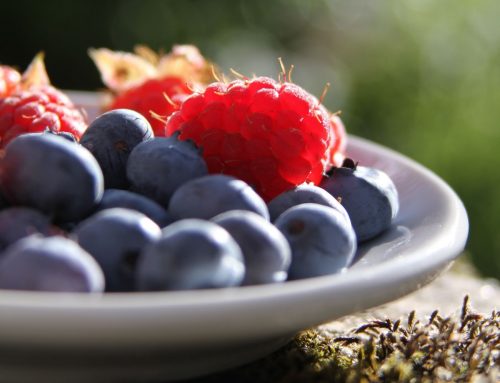Goji berries are also known as Lycium barbarum. The goji berry is native to Asia, and people in Asia have been using this brightly colored fruit for more than 2,000 years as a medicinal herb and food supplement. Goji berries are widely available for purchase in health food stores and online.
More recently, supporters have introduced goji berries to the rest of the world with claims of many potential health benefits. Modern science is investigating these claims, and researchers have backed many of them.
What the science says about goji berries.
Here are seven possible benefits of the goji berry with the scientific evidence supporting them:
1. Protects the eyes
Goji berries are believed to protect against age-related eye diseases.
Goji berries can help vision because they contain high levels of healthy antioxidants, especially zeaxanthin.
The same antioxidants can also stop damage from:
- UV light
- free radicals
- oxidative stress.
One study reported in the American Academy of Optometry’s journal Optometry and Vision Science found that seniors who drank goji berry juice for 90 days increased zeaxanthin and other antioxidant levels significantly.
A second study reported in the journal Drug Design, Development and Therapy shows goji berries protect the retina from the ganglion cells responsible for glaucoma, a condition that can lead to vision loss.
2. Provides immune system support
Goji berries contain healthy antioxidants. Antioxidants are known for their immune-boosting qualities and their ability to fight harmful free radicals and inflammation.
Goji berries contain large amounts of vitamins A and C, similarly to other berries, including blueberries and raspberries. Vitamins A and C are vital for building immunity and preventing illnesses, ranging from the common cold to cancer.
3. Protects against cancer
High levels of antioxidants, including vitamin C, zeaxanthin, and carotenoids, are responsible for fighting cancer cells. Antioxidants slow tumor growth, reduce inflammation, and help to remove harmful substances from the body.
Research on mice, reported in the journal Drug Design, Development and Therapy, finds goji berries may inhibit tumor growth and boost the effectiveness of cancer treatments.
4. Promotes healthy skin
Goji berries contain beta-carotene, which is an essential plant phytochemical. Beta-carotene is known for its ability to promote healthy skin.
Beta-carotene is an ingredient used in skin creams to:
- improve skin health
- reduce skin irritation
- manage the effects of the sun
- manage the impact of aging
One study in mice found that when they drank 5 percent goji juice, it gave them enough antioxidants to protect against UV light damage and skin disorders.
5. Stabilizes blood sugar
Goji berries may be helpful in controlling the release of sugar into the blood. Research from 2015 shows that goji berries balance insulin and glucose levels in the blood.
The same study linked goji berries to increased HDL levels in people with type 2 diabetes. HDL is known as good cholesterol.
6. Improves depression, anxiety, and sleep
Research from 2016 that was done using rats shows goji berries can improve depression and anxiety-like behaviors.
Another study in the United States, using humans, also found drinking goji berry juice could improve energy, mood, and digestive health.
In this study, healthy adult participants consumed 120 milliliters of goji berry juice daily or a placebo drink for 14 days.
They completed questionnaires to record their feelings of wellbeing, neurological and psychological health, musculoskeletal symptoms, and digestive and cardiovascular complaints, as well as any adverse effects of the juice each day.
The researchers took measurements to record each participant’s blood pressure, body mass, weight, pulse, and vision before and after the 14 days of study.
The group given the goji berry juice reported improved energy, ability to focus, enhanced athletic performance, mental acuity, and feelings of calmness and contentment by day 15.
The study also showed improved quality of sleep in those who consumed the goji berry juice, and none experienced negative effects related to drinking the juice.
7. Prevents liver damage
Goji berries have been used to treat liver disease in traditional Chinese medicine.
Research on animal models indicates goji berries can help with managing liver health and preventing the progression of alcohol-induced fatty liver disease.
Research on human liver cancer cells has also found the goji berry can inhibit tumor growth.
What makes goji berries so good?
Goji berries are often called a superfood because they contain chemical compounds called phytochemicals that are produced by plants. Phytochemicals in goji berries include polysaccharides, beta-carotene, and zeaxanthin.
Polysaccharides are a primary characteristic of the goji berry. These are an essential source of dietary fiber. A study using aging mice found that polysaccharides in goji berries helped with improving immune function and increasing total antioxidant activity in the body.
Beta-carotene is responsible for the orange-red color pigment in goji berries. Beta-carotene is vital for eye health, bone health, skin health, and cell development. The amount of beta-carotene in goji berries is among the highest of all edible plants.
Zeaxanthin plays a crucial role in supporting the immune system. Many researchers believe that zeaxanthin can prevent macular degeneration, a progressive vision impairment that occurs when the central part of the retina, or macula, deteriorates.
Adding goji berries to the diet
People can buy goji berries in most health food stores and Asian or European markets. They can easily add fresh and dry goji berries to:
- smoothies
- trail mixes
- oatmeal
- yogurt
- salads
- baked goods
- desserts
- sweet sauces
It is also easy for people to carry some with them when they go out and eat them by the handful as a snack.
Goji berries are available fresh or dried and in trail mixes, superfood mixes, or as a juice. Goji berries are available in supplement form in health food stores and online.
Goji berries are often expensive. However, the health benefits may be worth the cost. Prices will also depend on whether the product is organic, natural, or processed.
Who should avoid goji berries?
Goji berries may interact with some medications, including:
- blood thinners
- blood pressure medications
- diabetes drugs
People taking these medications should talk to their doctor before adding goji berries to their diet.
Anyone with an allergy to other berries should discuss this with a doctor before consuming fresh or dry goji berries or taking any supplement containing goji berry extracts.
Takeaway
Fresh and dry goji berries do not usually cause any side effects or adverse reactions in healthy people.
Goji berry supplements have been shown to be safe for most people when consumed for up to 3 months, with only rare side effects, such as allergic reactions and sensitivity to sunlight.
It is safe for most people to eat goji berries in moderation. People considering using goji berry supplements should check with their doctor first.
Source: Medical News Today





